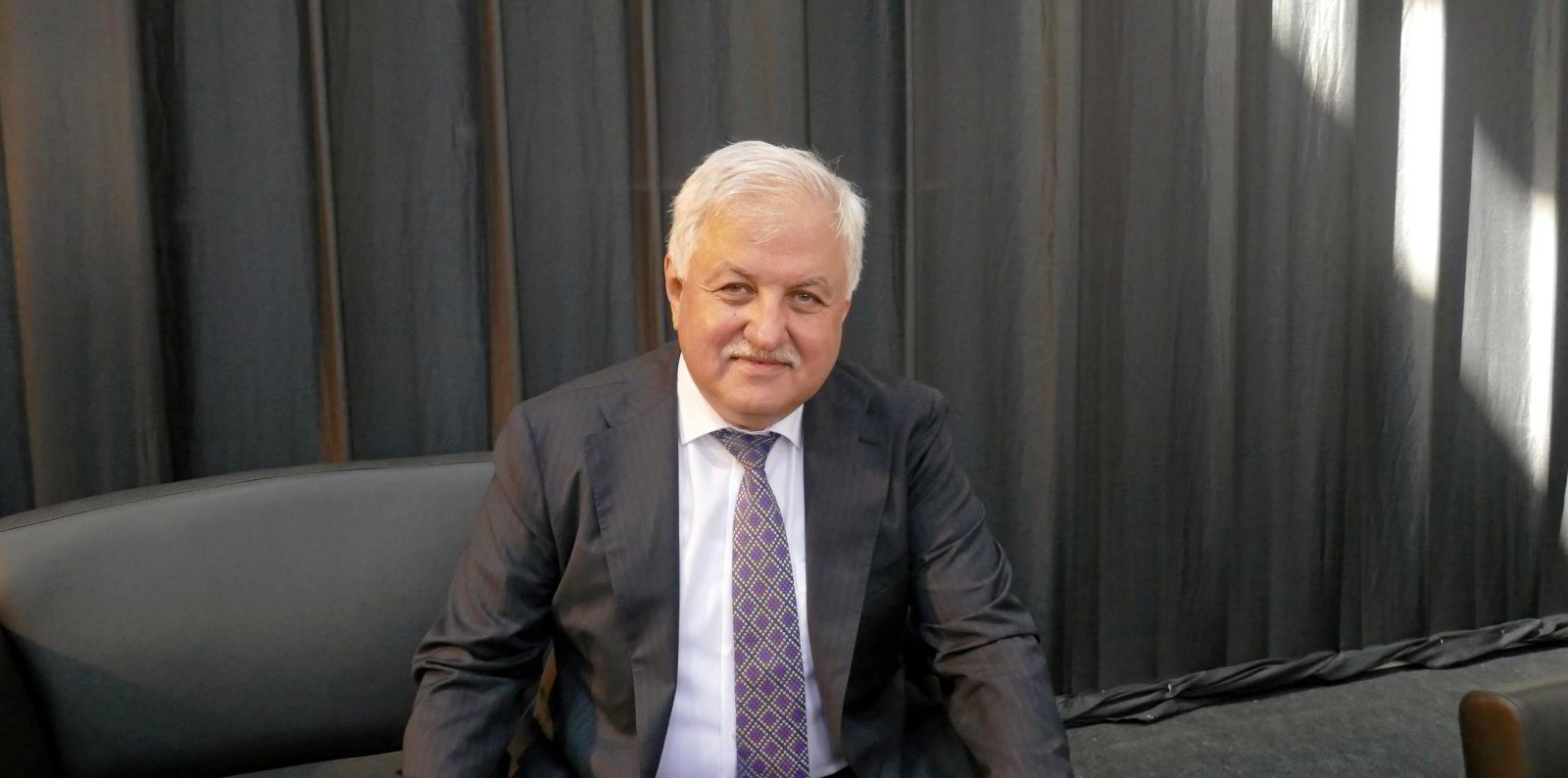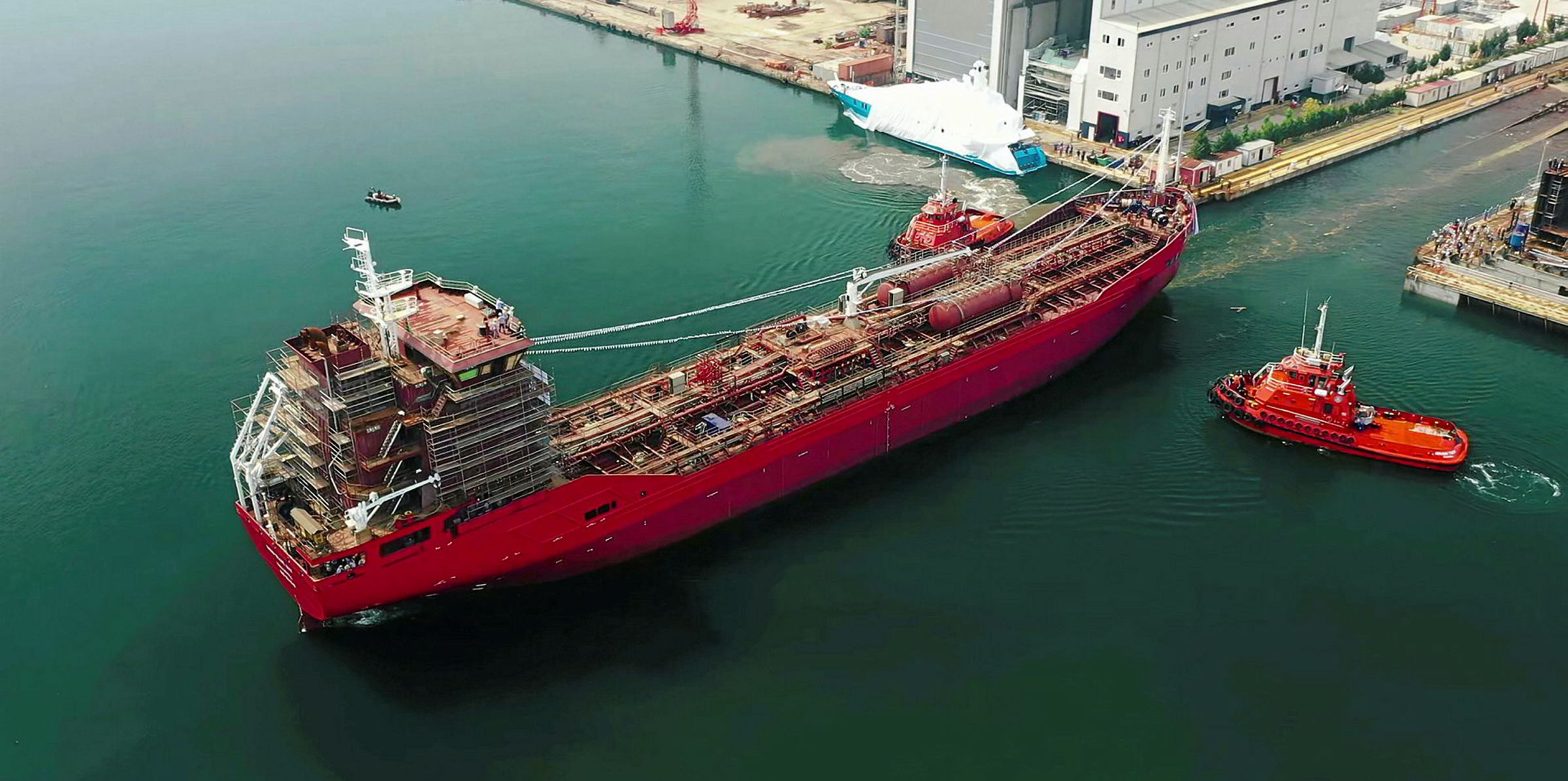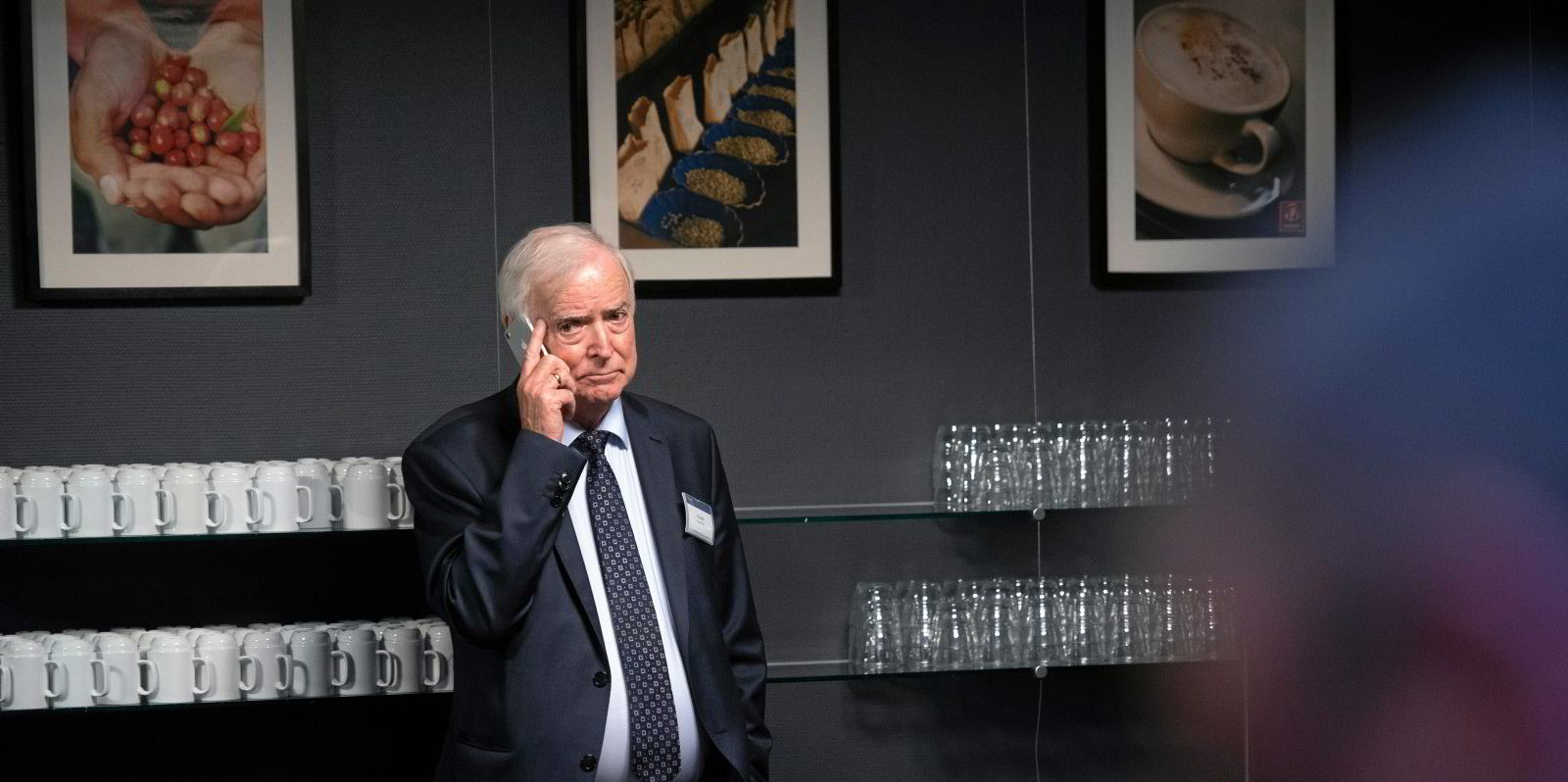Running out of space in its traditional locations by the Sea of Marmara, Turkey’s Tersan Shipyard plans a new facility from scratch in the country’s south-east.
The greenfield project is developed at the free economic zone of Ceyhan, a well-known oil Mediterranean terminal, and is initially budgeted at $100m.
“This is entirely our investment, at the moment,” Tersan board chairman Nurettin Paksu told TradeWinds on the sidelines of the Turkish Maritime Summit in Istanbul.
“We have analysed that there is, and will be, a gap in the market for such a huge shipyard especially in that specific region.”
The move is part of a wider company strategy to expand its capacity in order to build more, bigger and new types of niche vessels, and to repair very large ships.
“We will install very big docks there to increase ship repair and we would also like to expand our capacity for offshore vessels and huge floating offshore structures,” Paksu said.
Turkish shipyards were hit hard by the economic crisis of 2008. In the years that followed, many of them turned to ship repair or focused on niche shipbuilding to survive.
Few of them did this as successfully as Tersan, which currently has an orderbook of 19 vessels — from cruisers to hi-tech factory fishing vessels, offshore units and windmill support vessels and hybrid ferries for non-Turkish clients, mainly from Norway and Canada.
As several Norwegian shipyards shut down in the wake of collapsing oil prices a few years ago, Tersan jumped into the breach to draw much business there from clients such as Havila Kystruten and Fjord1.
The Havila business proved something of a headache, after a project to build four cruise ferries at Tersan threatened to be derailed following sanctions against Russia earlier this year.
However, Tersan managed to deliver two of the four ships that Havila ordered, including the 15,500-gt Havila Capella (built 2021), and expects to deliver the remaining two normally later this year.
The Havila Capella had been stuck in port since 12 April after domestic insurer Gard dropped its cover when the lease financier — Russia’s GTLK Asia — was sanctioned over the war in Ukraine.
However, on 24 June, Havila owner Per Saevik obtained relief from an Oslo court that allowed Gard to reinstate cover.
Shipbuilding accounts for about 85% of Tersan’s income.
Counting on the upgrading of the company’s facilities at Tuzla, Yalova and later in Ceyhan, Paksu expects Tersan to be able to tap into new markets, in line with shipping’s general decarbonisation drive.
“Among other bigger size projects, offshore wind farms and related support vessels are a key target,” Paksu said.
“The potential is not only in terms of newbuildings but also in terms of repair of existing suezmax ships in this strategic region, which is near the Suez Channel.”





